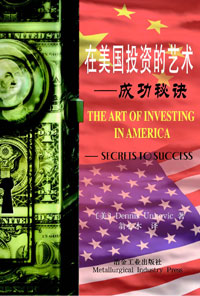Related Research Articles
E-Prime denotes a restricted form of English in which authors avoid all forms of the verb to be.
Singular they, along with its inflected or derivative forms, them, their, theirs and themselves, is a gender-neutral third-person pronoun. It typically occurs with an indeterminate antecedent, in sentences such as:

The Elements of Style is an American English writing style guide in numerous editions. The original was written by William Strunk Jr. in 1918, and it was published by Harcourt in 1920, comprising eight "elementary rules of usage," ten "elementary principles of composition," "a few matters of form," a list of 49 "words and expressions commonly misused," and a list of 57 "words often misspelled." E. B. White greatly enlarged and revised the book for publication by Macmillan in 1959. That was the first edition of the so-called Strunk & White, which Time recognized in 2011 as one of the 100 best and most influential books written in English since 1923.

Nick Mamatas is an American horror, science fiction and fantasy author and editor for Haikasoru's line of translated Japanese science fiction novels for Viz Media. His fiction has been nominated for a number of awards, including several Bram Stoker Awards. He has also been recognised for his editorial work with a Bram Stoker Award, as well as World Fantasy Award and Hugo Award nominations. He funded his early writing career by producing term papers for college students, which gained him some notoriety when he described this experience in an essay for Drexel University's online magazine The Smart Set.

Academic writing or scholarly writing is nonfiction writing produced as part of academic work in accordance with the standards and disciplines of each academic subject, including:
A fumblerule is a rule of language or linguistic style, humorously written in such a way that it breaks this rule. Fumblerules are a form of self-reference.

Eric "E. D." Donald Hirsch Jr. is an American educator, literary critic, and theorist of education. He is professor emeritus of humanities at the University of Virginia.

Adam Phillips is a British psychoanalytic psychotherapist and essayist.

The iceberg theory or theory of omission is a writing technique coined by American writer Ernest Hemingway. As a young journalist, Hemingway had to focus his newspaper reports on immediate events, with very little context or interpretation. When he became a writer of short stories, he retained this minimalistic style, focusing on surface elements without explicitly discussing underlying themes. Hemingway believed the deeper meaning of a story should not be evident on the surface, but should shine through implicitly.
Show, don't tell is a narrative technique used in various kinds of texts to allow the reader to experience the story through actions, words, subtext, thoughts, senses, and feelings rather than through the author's exposition, summarization, and description. It avoids adjectives describing the author's analysis and instead describes the scene in such a way that readers can draw their own conclusions. The technique applies equally to nonfiction and all forms of fiction, literature including haiku and Imagist poetry in particular, speech, movie making, and playwriting.

"Story of Your Life" is a science fiction novella by American writer Ted Chiang, first published in Starlight 2 in 1998, and in 2002 in Chiang's collection of short stories, Stories of Your Life and Others. Its major themes are language and determinism.

Letter to a Christian Nation is a 2006 book by Sam Harris, written in response to feedback he received following the publication of his first book The End of Faith. The book is written in the form of an open letter to a Christian in the United States. Harris states that his aim is "to demolish the intellectual and moral pretensions of Christianity in its most committed forms." In October it entered the New York Times Best Seller list at number seven.
Teresa Ferster Glazier, born Lily Teresa Ferster, was an American nonfiction writer. One of her most famous works was The Least You Should Know About English series of textbooks used by the Institute of Education Sciences.
The direct method of teaching, which is sometimes called the natural method, and is often used in teaching foreign languages, refrains from using the learners' native language and uses only the target language. It was established in England around 1900 and contrasts with the grammar–translation method and other traditional approaches, as well as with C.J. Dodson's bilingual method. It was adopted by key international language schools such as Berlitz, Alliance Française and Inlingua in the 1970s and many of the language departments of the Foreign Service Institute of the U.S. State Department in 2012.

The Art of Investing in America: Secrets to Success is the sixth book written by Dennis Unkovic.

Patricia T. O'Conner is the author of five books about the English language. A former staff editor at The New York Times Book Review, she has appeared regularly as a language commentator for WNYC and Iowa Public Radio. She has written extensively for The New York Times, including book reviews, On Language columns, and articles for the op-ed page and the Week in Review section. Her work has also appeared in Smithsonian, The Paris Review, the Literary Review (London), and other publications.

This list comprises widespread modern beliefs about English language usage that are documented by a reliable source to be misconceptions.

Googled: The End of the World as We Know It is a book published in 2009 by American writer, journalist and media critic Ken Auletta. It examines the evolution of Google as a company, its philosophy, business ethics, future plans and impact on society, the world of business and the Internet.

Guy P. Harrison is an American author of bestselling books. He writes about science, critical thinking, history, race, and nature.

Talking to Strangers: What We Should Know about the People We Don't Know is a nonfiction book written by Malcolm Gladwell and published by Little, Brown and Company on September 10, 2019. The audiobook version of the book follows Gladwell's Revisionist History podcast-style structure, using Gladwell's narration, interviews, sound bites, and the theme song "Hell You Talmbout".
References
- ↑ Small, Deborah (1985). "Lima Beans". Chicago Review. 34 (4): 56–62. doi:10.2307/25305290. ISSN 0009-3696.
- ↑ "The Least You Should Know about English: Writing Skills, Form 8, 9th ed.(book)(Brief Article)(Book Review)". Reference and Research Book News. 2006-08-01. Archived from the original on 2016-02-20. Retrieved 2015-11-15.
- ↑ Guinn, Dorothy Margaret (February 1978). "Review". College Composition and Communication . 29 (1): 70–74. JSTOR 356264.
- ↑ McLemore, Laura (1988). Developmental Writing Module. Adult Literacy Project.